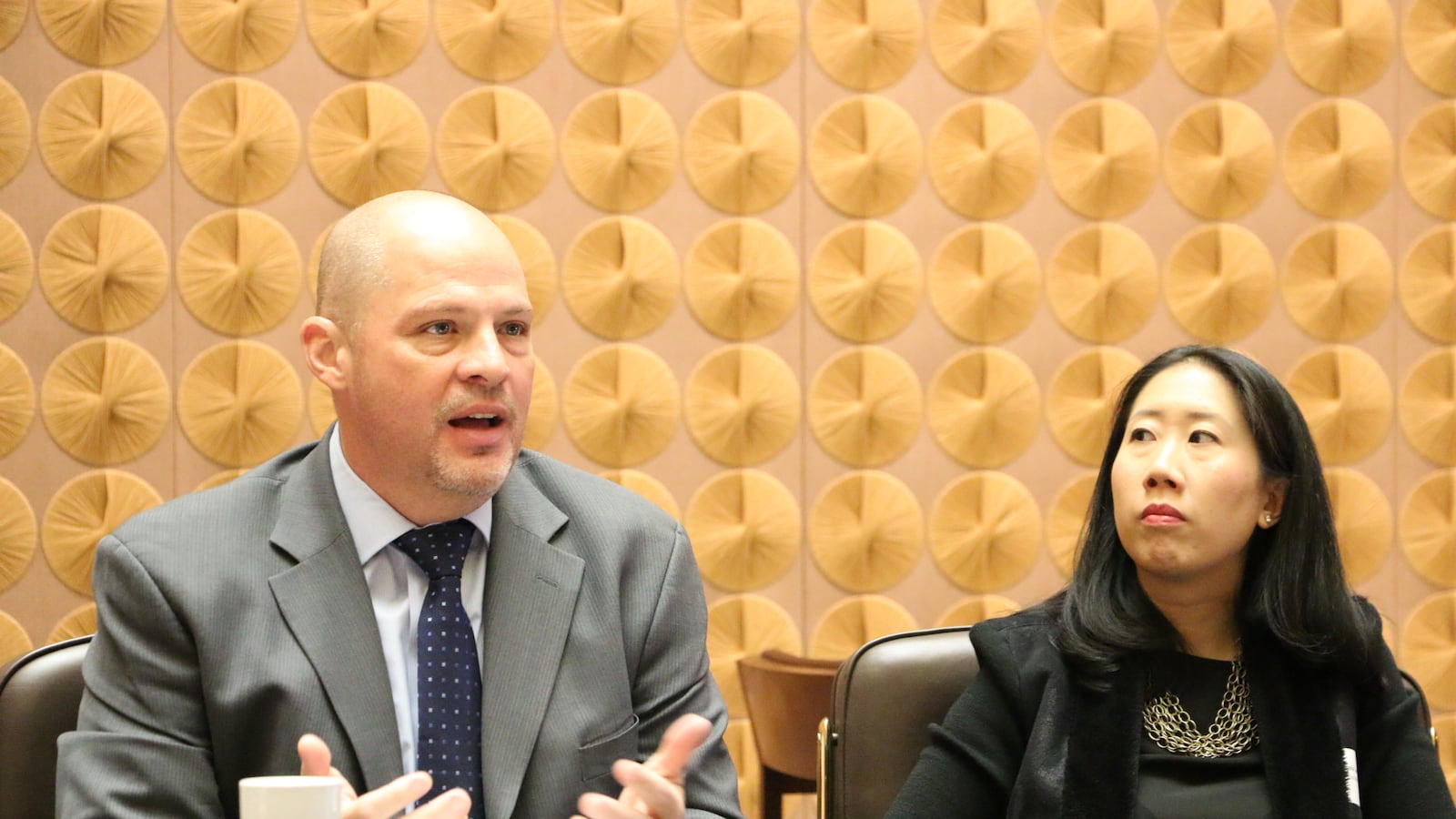The leader of New York City’s teachers union is “frustrated” with the state’s proposed Common Core revisions, which he said do not address teachers’ core issues with the original learning standards.
The Common Core standards spell out the precise skills and knowledge students should have at each grade level. In December, facing political backlash, New York joined many states across the country in revising the standards.
Since state officials unveiled those proposed changes last month, the city’s teachers union has been relatively quiet. But in an interview with Chalkbeat, United Federation of Teachers President Michael Mulgrew criticized the draft standards as insufficient.
“We’re happy the process has started,” Mulgrew said. “We’re not happy with what we’ve seen so far.”
Mulgrew argues the proposed standards have major flaws: They do not adequately accommodate English Language Learners, he said, and should do more to fix the heavily criticized early-grade reading standards.
“You have to take into account the child’s ability level,” Mulgrew said.
State officials have acknowledged there is more work to do for English learners, and for students with disabilities. Officials said they will consult independent experts to figure out how best to implement the standards for English Language Learners.
The problem with that approach, Mulgrew said, is that reforming the standards should be a teacher-driven process, and he worries it will become one for “experts behind closed doors.”
In response to that criticism, state spokeswoman Emily DeSantis said, “The standards review process has always been – and will continue to be – teacher-driven.”
The experts, she said, will work with the committees, comprised of 130 teachers, administrators, and other stakeholders, who worked on the standards. Experts are also reviewing the early-grade English standards, and the state convened an Early Learning Task Force to more closely examine concerns about the P-2 standards.
The UFT supported the adoption of Common Core in 2010, and Mulgrew defended the use of learning standards in a widely-shared speech in 2014. But the union has criticized the implementation of the standards and has taken an increasingly negative stance towards Common Core. Earlier this year, the UFT released an ad claiming, “The Common Core roll-out was a disaster.”
Mulgrew’s response appears more critical than that of the state teachers union, New York State United Teachers, which praised the draft standards as a “good step” in a press release after the revisions were released. Other entities stayed mainly positive as well, including the New York State Council of School Superintendents, who said they were “encouraged by the process” of revising the standards, and the New York State Parent Teacher Association, whose president called the revisions an “important step.”
Since the state has only proposed draft revisions, which are subject to change after a public comment period, Mulgrew said he could not make a final determination on the standards. Yet so far, the revisions do not represent a big enough departure from Common Core for Mulgrew.
“We’re a little bit frustrated in what we’ve seen so far,” he said.

